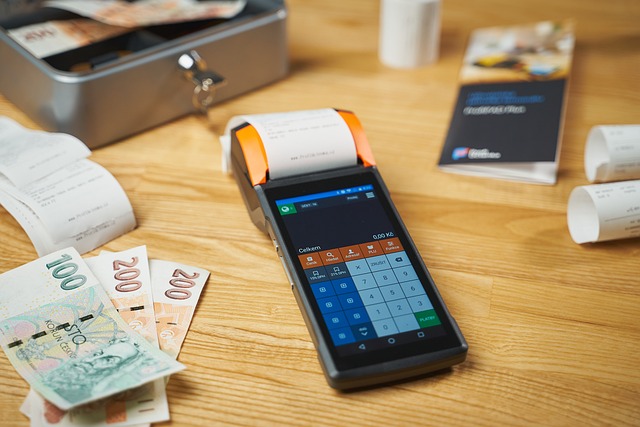Swipe to Profit: How Dating Apps Turn Love Into Big Business

Strong 8k brings an ultra-HD IPTV experience to your living room and your pocket.
In the age of swipes, likes, and instant connections, dating apps have become more than just platforms for meeting new people—they're massive revenue-generating machines. But while users enjoy the convenience of finding matches with a flick of the finger, very few stop to ask: how do dating apps make money?
The reality is, behind the flirtatious notifications and heart animations, there's a sophisticated business model built to turn love—or at least the search for it—into cold, hard cash.
The Rise of Digital Romance
Before we dive into the dollars, it's essential to understand the landscape. Over the past decade, dating apps have grown from niche experiments to a multi-billion-dollar industry. With over 300 million people worldwide using dating apps and millions of new matches made daily, it’s clear that digital romance is here to stay.
But providing these services at scale requires substantial resources: servers, developers, security, and marketing—all of which cost money. So naturally, dating apps had to evolve into profitable ventures. That brings us back to the big question: how do dating apps make money in a world where most users expect to swipe for free?
1. Freemium Model: Love, With an Upgrade
One of the most common strategies dating apps use is the freemium model—a basic free experience with the option to pay for enhanced features. Think of it as dating in economy class, with the option to move to first class.
Popular features behind paywalls include:
- Seeing who liked you
- Unlimited swipes
- Advanced matching filters
- Rewind on accidental left swipes
- Profile boosts to increase visibility
Apps like Tinder, Bumble, and Hinge offer monthly subscriptions such as Tinder Gold, Bumble Boost, or Hinge Preferred, generating recurring revenue from users willing to invest a little more into their love life.
By providing addictive, fun, and slightly limited experiences for free, these platforms nudge users toward paid subscriptions. This strategy is key to understanding how do dating apps make money consistently over time.
2. In-App Purchases: Microtransactions, Major Profits
Beyond subscriptions, many dating apps cash in on in-app purchases—small, one-time payments for boosts, super likes, profile spotlights, and more.
Here’s how they work:
- Boosts place your profile at the top of the queue for a set time.
- Super Likes give you a better chance of getting noticed.
- Spotlights highlight your profile across a broader user base.
These purchases usually cost anywhere from $1 to $10, but when you consider that millions of users make them daily, the math adds up fast. It’s another layer in understanding how do dating apps make money even from users who avoid full subscriptions.
3. Advertising Revenue: You're the Product
Just like social media platforms, many free dating apps rely heavily on ad revenue. If you're using the app without paying, chances are you're seeing ads between swipes or as sponsored profiles.
Dating apps partner with brands to display:
- Video ads
- Banner promotions
- Sponsored matches
- Location-based ads
These ads are often highly targeted based on your age, interests, and location—valuable data you’ve willingly shared. The more time you spend on the app, the more ads you see, and the more revenue the platform earns. This ad-centric model is a major contributor when analyzing how do dating apps make money from non-paying users.
4. Data Monetization: The Hidden Goldmine
While not all dating apps engage in this practice, some monetize through aggregated and anonymized data. User behavior—like when you log in, how long you spend on the app, and what profiles you like—can offer deep insights into consumer psychology.
Companies in marketing, behavioral research, and even urban planning may find this data useful. Though it's typically anonymized to protect individual privacy, the data itself holds immense value. This lesser-known revenue stream is a critical part of the discussion around how do dating apps make money, especially as the digital economy becomes more data-driven.
5. Partnerships & Brand Collaborations
Some dating apps have discovered that love pairs well with lifestyle. Apps like Bumble and Hinge have partnered with local restaurants, bars, and even travel companies to offer curated date ideas, discounts, or sponsored events.
These brand collaborations create a win-win:
- The brand gets exposure to a hyper-targeted audience.
- The dating app earns a cut or promotional fee.
These partnerships help create richer user experiences while contributing to how dating apps make money in creative, non-intrusive ways.
6. Premium Verification & Safety Features
With rising concerns around online safety and authenticity, some platforms now offer premium verification services and features that promote trust—like background checks, video chat access, and profile authentication.
These safety features can be part of a paid tier or a separate purchase altogether. Since user trust is paramount in dating environments, offering peace of mind has proven to be not just a public good—but a profitable one too.
This safety-first approach shows another angle to the ongoing question: how do dating apps make money while improving the quality of connections.
7. Virtual Dating & Event Monetization
Post-pandemic, virtual events have become more popular. Some apps offer online speed dating events, live video dates, or even group hangouts—with a price tag attached.
Whether users pay to attend or brands sponsor the event, virtual gatherings provide an interactive way to engage and monetize users without requiring them to leave their homes.
It's a modern twist on matchmaking that contributes to how dating apps make money in today’s socially distanced world.
8. Investors and Acquisitions: The Bigger Picture
Many top dating apps are part of larger corporate umbrellas. For example, Match Group owns Tinder, Hinge, OKCupid, and Plenty of Fish. These conglomerates generate massive profits through economies of scale, shared data infrastructure, and cross-promotion.
Additionally, new and niche dating apps often seek acquisition as a goal. A successful niche app might get bought out, bringing in millions for its creators and expanding the buyer's reach. In this broader ecosystem, understanding how do dating apps make money involves looking beyond just user transactions and into boardroom strategies.
Conclusion: More Than Just Matches
So, how do dating apps make money? The answer is layered: through freemium models, in-app purchases, advertising, data, partnerships, premium safety tools, virtual events, and even strategic acquisitions.
While users see romance, the companies behind the apps see a business model built on psychology, data, and convenience. Whether you’re swiping right for love or just curious about the tech world, knowing how these platforms generate revenue helps you become a more informed user in the digital age of dating.
Note: IndiBlogHub features both user-submitted and editorial content. We do not verify third-party contributions. Read our Disclaimer and Privacy Policyfor details.







